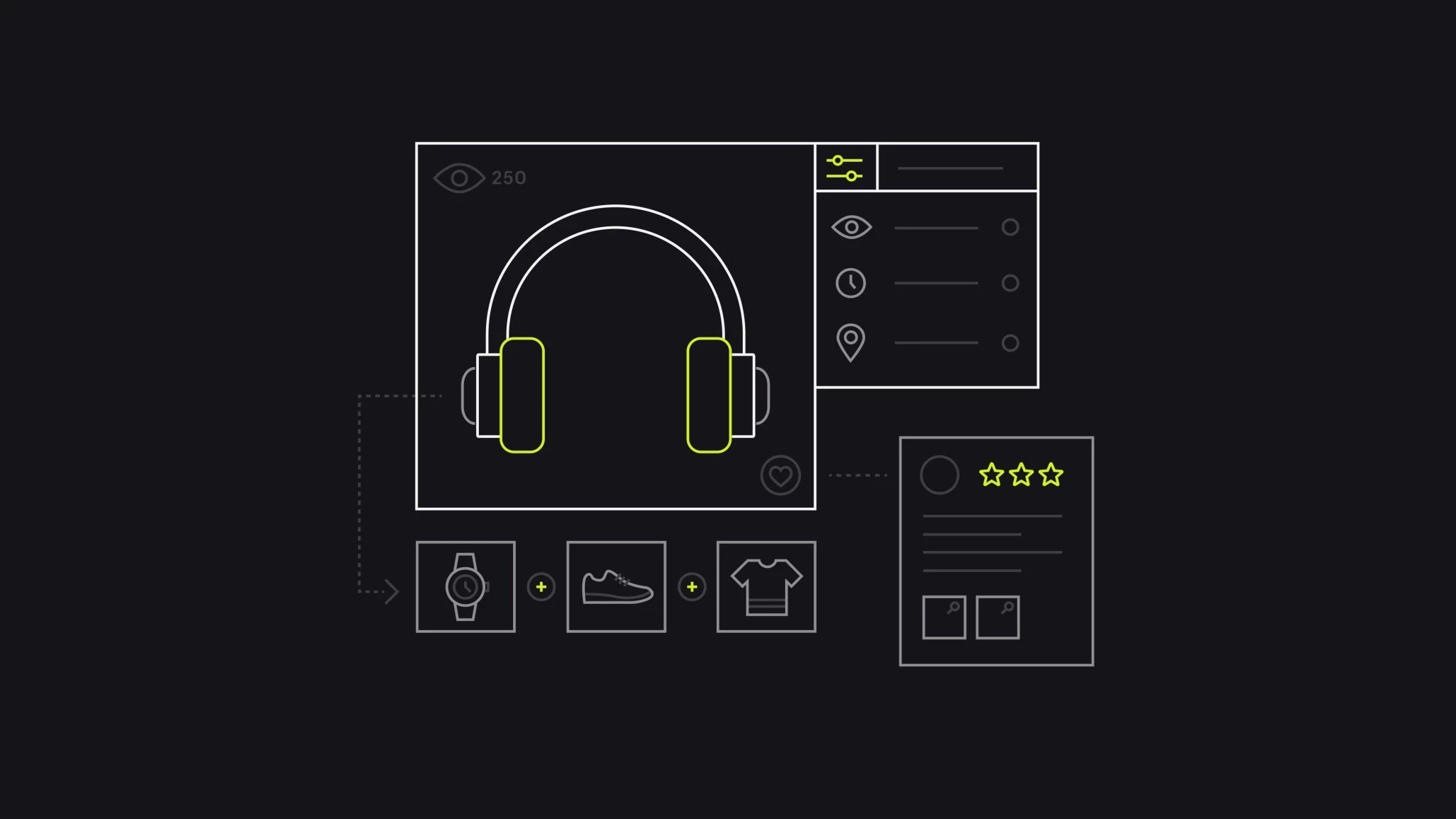What is Product Customization?
Product personalization refers to allowing customers to create their dream products by customizing existing ones. This includes choosing colors, adding photos or text, and much more.
But why is product customization trending? Because customers increasingly seek personalized experiences. What’s better than letting them create exactly what they’re looking for? They can modify products to suit their needs.
And, as you can imagine, offering online product customization has numerous benefits for the merchant: from boosting sales by providing exactly what customers need, to enhancing Customer Experience, making it more engaging and innovative.
What is Ecommerce Personalization?
E-commerce personalization is the practice of tailoring online shopping experiences to individual customers. This is done by delivering relevant content, product recommendations, and offers based on their preferences, behavior, and demographics. It aims to enhance customer satisfaction, engagement, and conversion rates by providing a personalized shopping journey.
It has become an essential marketing strategy for merchants seeking to engage shoppers, increase repeat purchases, and improve conversion rates. Personalization comes in different forms. They include cart abandonment marketing emails, onboarding quizzes that provide personalized showroom to customers, personalized product recommendations on a retailer’s homepage or product, among many other strategies.
Why is Ecommerce Personalization Important to Businesses?
In this new age of e-commerce. Businesses, whether B2B or B2C, need to develop sound e-commerce personalization strategies to gain a competitive edge and also to gain from the trendy.
- Increase in sales due to increased conversions: Ecommerce personalization helps improve sales since it enables you to provide customers with goods and services that resonate with them or satisfies their needs. The use of personalized content are more likely to attract more consumers and increase revenue generation and also capture your customer’s attention long enough to entice a sale. By creating a personalized shopping experience based on customers’ needs and interests, you can improve overall customer satisfaction. It also makes the shopping experience more convenient, which impacts their decision making
- Increase in website traffic : When you tailor your website to resonate with your customer’s interests, they will automatically want to spend more time on it and visit it more frequently.
- Increase in average order size: Disseminating personalized information to your customers increases the chances of them indulging in shopping and making more purchases every time they visit your website. You may be wondering how e-commerce personalization makes this possible!
- Increase conversion rates: With personalization, you can show relevant products to your customers based on their browsing history. This leads to higher conversion rates.
- Higher average order value (AOV): You can also increase AOV with ecommerce personalization. Personalized product recommendations can help cross sell and upsell complementary or higher-value items. You can also send tailored discounts and bundle products based on buying behavior.
Ecommerce personalization Frequently Asked Question:
What are the 4 Rs of personalization?
- Relevance: Making sure that the content delivered to the user is relevant to their needs.
- Recognition: Remembering user preferences and behaviors in order to deliver personalized content.
- Responsiveness: Providing timely, relevant content that is tailored to the user’s needs.
- Results: Measuring the effectiveness of personalization efforts and adjusting strategies to maximize user engagement.
How important is personalization in ecommerce?
Personalization is important in ecommerce because consumers today expect personalized experiences across all digital touchpoints, from product recommendations to tailored content and offers. Personalization helps improve conversion rate optimization, increase engagement, and drive sales. It can help ecommerce businesses build customer loyalty, increase customer satisfaction, and develop a competitive advantage.
What is personalization and customization in ecommerce?
Personalization and customization in ecommerce are the processes of customizing a user’s experience by delivering content tailored to their individual needs, interests, and preferences. This could include personalized recommendations for products, tailored ads, and custom content. Website personalization can help make a customer’s shopping experience more efficient by presenting the most relevant products and content.
What are examples of personalized marketing in ecommerce?
- Targeted email campaigns: Sending emails to loyal customers that are tailored to their interests and needs.
- Personalized product recommendations: Using customer data to make product recommendations that are tailored to each customer.
- Social media engagement: Engaging with new customers on social media and responding to their questions, comments, and feedback.
- Customized content: Creating content that is tailored to individual customers and their interests.
- Loyalty programs: Offering loyalty programs that reward customers for their buying habits and engagement.
- Dynamic pricing: Adjusting prices based on customer behavior.
Conclusion:
By featuring a focused product selection, catalogs save people time lost in searching a website. Therefore a need for Digital catalogs which can be customized by customers so that they see only the data you want them to see. Enhance your catalog with easy-to-create products for invoicing and client purchases. Unleash the potential of your product line with Bizzyeasy.
